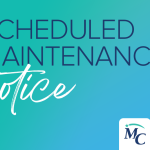The housing market in America has seen wild swings in the past decade, with average rates on 30-year fixed mortgages reaching record lows of below 3 percent during the recent pandemic.
That helped many people afford a first-time mortgage or buy up to the home of their dreams. It also created more demand which led to steep price increases and low housing inventory. Now that interest rates are above 6 percent and prices remain high, many Americans are finding it hard to fulfill their dream of homeownership. In a recent Credit Karma survey, 49 percent of respondents who don’t own a home said mortgage rates and inflation are preventing them from purchasing one right now.
If you are in the market for a home, it’s important to understand how much mortgage you can afford and what you can qualify for before signing any contracts.
Review your budget and expenses. Some lenders will prequalify you for a mortgage of up to 43 percent of your monthly income, but it may not be wise to take on that much debt. Instead, financial planners recommend a mortgage be no more than three times your annual salary or 28 percent of your gross household income.
Determine if now is the best time to buy. If rates and prices are not working in your favor, it may make sense to delay shopping, and instead take steps that will help you better afford a mortgage in the future.
Work on your credit. In 2023, the median FICO credit score of successful mortgage applicants was 759, or ‘very good’. Generally, higher credit scores equal lower mortgage rates. Do you know your current score? Many credit unions and financial institutions will track your credit score each month for free. You can also request a free weekly credit report from each of the three main credit reporting bureaus. Visit AnnualCreditReport.com to get started.
To maintain a healthy credit score, pay your bills on time, and work to reduce your outstanding debt to save more toward a down payment. Also resist applying for any new credit or closing current lines of credit just before applying for a mortgage. Each inquiry affects your score.
Save a bigger down payment. In 2023, first-time homebuyers paid an average down payment of 8 percent of the sale price, the highest amount since 1997, according to the National Association of Realtors. If you can apply a larger down payment, you may qualify for more favorable mortgage terms. If you received a tax refund or have savings in a low-interest account, talk to your credit union about moving the funds to a high-yield savings account.
Ohio Homebuyer Plus Program. The Ohio Homebuyer Plus program can also help Ohioans of all income levels save for a home, with state income tax-advantaged savings accounts that pay above-market interest rates. Ohio credit unions can work with you to open a Homebuyer Plus account where you may save up to $100,000 over five years. The funds must be applied toward a down payment or closing costs on the purchase of a home in Ohio. Learn more here.
Homebuyer Assistance Programs. There are also many state and federal programs designed to make purchasing a home more affordable. Many are specifically for first-time homebuyers or low-income citizens. Learn more about available programs at myohiohome.org.
Seek professional financial advice. Buying a home is a major investment and life decision. It can help to seek the advice of a trained financial professional before you start the journey. As member-owned financial institutions, credit unions often provide financial guidance, creditbuilding products, and charge lower interest rates. Leverage your local credit union resources to determine the right time to buy a home, and how to stay in top financial health. To find a credit union near you, visit yourmoneyfurther.com.














